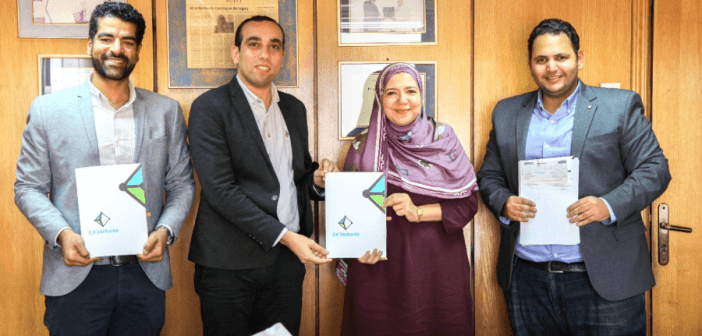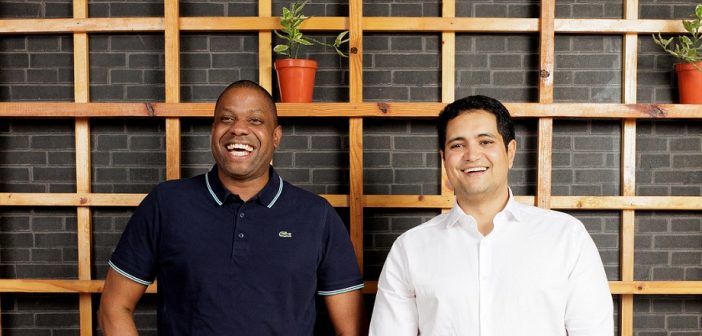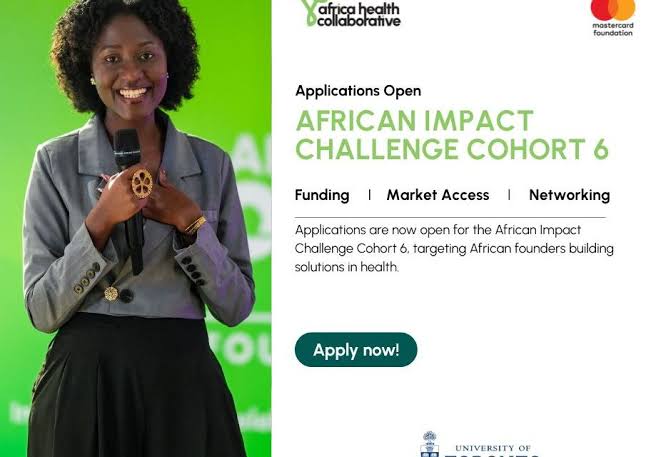The top 10 M&A deals involving African Tech startups in 2024

Similar to 2023, 2024 has been a difficult year for funding tech startups in Africa as the industry continues to be impacted by the worldwide capital crisis.
Although capital is beginning to flow back into the ecosystem, success stories are what will entice additional domestic and foreign investors to begin backing the continent’s digital sector. These typically take the shape of exits, of which a trade sale or acquisition is the most typical kind.
Here, we examine 2024’s top ten M&A deals.
May – SA fintech company Adumo acquired by Lesaka in $85.9m deal
Subject to shareholder and regulatory clearance, competitor Lesaka has purchased South African fintech business Adumo for ZAR1.59 billion (US$85.9 million).
About 23,000 active merchants receive assistance from Adumo, the biggest independent payments processor in South Africa, with tasks like card acquisition, integrated payments, and reconciliation services. It has been somewhat of an acquisition binge since obtaining US$15 million in investment from IFC in 2021, purchasing smaller payment startups such as SwitchPay, WireCard, GAAP, SureSwipe, and iKhokha.
It has now been purchased by Lesaka, a fintech business based in South Africa that offers merchants and customers in the region top-notch financial services solutions by leveraging its in-house banking and payment technologies.
The current ultimate owners of Adumo will receive 17,279,803 shares of Lesaka common stock in exchange for ZAR 232 million (US$12.5 million) in cash, which will cover the acquisition price of ZAR 1.59 billion (US$85.9 million). Apis Growth firm I, a private equity firm run by Apis Partners LLP, African Rainbow Capital, the biggest stakeholder in Crossfin Holdings, IFC, and Adumo management are among Adumo’s ultimate shareholders.
March: Deel acquired SA’s PaySpace
In its largest acquisition to date, American payroll and outsourcing firm Deel acquired South African payroll and HR software and services provider PaySpace.
More than 14,000 users of PaySpace’s software and services are spread throughout 44 countries in Europe, Latin America, the Middle East, and Africa. Multinational corporations from a variety of industries, including Heineken, Coca-Cola Beverages, and Puma Sports SA, are among the clients. The acquisition presents Deel with a chance to expand its presence in Africa.
May: To expand in Nigeria and South Africa, Kenyan mobility firm BuuPass buys QuickBus.
In an attempt to expand in South Africa and Nigeria, Kenyan mobility startup BuuPass purchased QuickBus.
BuuPass is a B2B2C mobility marketplace that was founded in 2016 and allows users to browse, compare, and book travel tickets over the USSD, app, or web.
In addition to participating in the Google for Startups Accelerator Africa and receiving funding from the Google for Startups Black Founders Fund, the firm has sold over six million travel tickets and generated over US$100 million in total sales value to date.
In contrast, QuickBus was lauched in 2019 and compiles long-distance bus tickets in a marketplace, facilitating price comparison and trip booking for customers and assisting bus firms in operating more effectively.
In a move that would support BuuPass’ strategic expansion into South Africa and Nigeria, where it plans to add more than 5,000 additional routes to its platform, it has now bought it.
More than 100 bus operators and a number of well-known online distribution alliances, such as FNB, Vodacom, and MTN, will also be onboarded by BuuPass.
May: Santam acquires SA home services marketplace Kandua
Johannesburg-based online home services marketplace Santam, the biggest short-term insurer in South Africa, has fully bought Kandua.
Kandua, which was founded in 2014 by Arjun Khoosal and Sayo Folawiyo, assists anyone in need of house repairs or renovations in locating a qualified, background-checked specialist.
In July 2021, the firm, which links consumers with over 40,000 verified home service providers, raised a “significant” pre-Series A fundraising round. Santam, a short-term insurer listed on the JSE with a market share of more than 22%, has now fully purchased it.
In order to create a fully-owned, autonomous subsidiary of the insurer, Kandua will combine with Home+, Santam’s current home service provider.
June: Yassir purchases KooL, a Tunisian company
The market leader in Africa for delivery and mobility services, Yassir of Algeria, purchased KooL, a startup from Tunisia.
KooL, which was founded in March 2021, has become the standard for meal delivery in Tunisia. Its highly regarded service quality and unique alliances with Tunisia’s most prominent brands are the foundation of its success.
July: Custom software development company Operativa is acquired by SA fintech startup Peach Payments.
In the first acquisition of this kind since closing a US$31 million fundraising round last year, sponsored by the Apis Growth Fund II, South African digital payments service provider Peach Payments has acquired customer software development company Operativa as a going concern.
Peach Payments, which was established in Cape Town in 2012, offers a comprehensive toolbox to assist companies in accepting, handling, and distributing payments via mobile and the internet. In addition to expanding to Kenya and Mauritius, it is currently the second-largest online payment gateway in South Africa..
In order to expand its product offering and speed up its growth throughout the continent, the firm raised a US$31 million Series A funding round from Apis Partners last year. With this acquisition, the whole Operativa team will be merged into Peach Payments. Ben Janecke and Dayne Olivier, co-founders of Operativa, are joining the company as Principal Engineers.
November: To strengthen supply chain infrastructure, Ghanaian retail technology firm Tendo buys rival Shopa.
Tendo Technologies, a retail technology business based in Ghana, has announced that it has strategically acquired Shopa, with the goal of transforming supply chain infrastructure throughout Africa.
Tendo, which was founded in 2021 by Felix Manford, Evans Boateng, Derrick Mungai, and Primerose Katena, connects tens of thousands of people with suppliers to help them start and expand their internet companies without needing any initial funding.
In Ghana and Nigeria, where it first opened in 2022, it has a strong network of more than 10,000 retail resellers and serves over 42,000 customers with a wide variety of products, such as electronics, fashion, beauty, and fast-moving consumer goods (FMCG).
In contrast, Shopa, which was established in 2021 by Ulrich Checkap, Frank Addae, and Michael Hammond, maximizes the distribution of fast-moving consumer goods (FMCG) by connecting merchants with manufacturers and suppliers directly through its technological platform. It boasts sophisticated operational systems and a network of more than 3,000 stores across Ghana.
The Catalyst Fund Inclusive Digital Commerce Accelerator provided money and support to both businesses in 2021. However, Tendo’s acquisition of Shopa, which was structured as a combination of cash and stock, led to their merger.
April: To grow its digital healthcare network, Ghanaian e-health startup Rivia buys out local SaaS provider Waffle.
Waffle, a Ghanaian SaaS company that specializes in software for small and medium-sized enterprises, has been acquired by Rivia, an e-health startup located in Ghana that works with clinics to improve service quality in the healthcare industry.
In order to improve patient service quality and broaden clientele reach, Rivia, which was introduced in January, collaborates with clinics to provide all-encompassing assistance in customer acquisition, financing, and technology.
The Catalyst Fund Inclusive Digital Commerce Accelerator provided money and support to both businesses in 2021. However, Tendo’s acquisition of Shopa, which was structured as a combination of cash and stock, led to their merger.
April: To grow its digital healthcare network, Ghanaian e-health startup Rivia buys out local SaaS provider Waffle.
Waffle, a Ghanaian SaaS company that specializes in software for small and medium-sized enterprises, has been acquired by Rivia, an e-health startup located in Ghana that works with clinics to improve service quality in the healthcare industry.
In order to improve patient service quality and broaden clientele reach, Rivia, which was introduced in January, collaborates with clinics to provide all-encompassing assistance in customer acquisition, financing, and technology.
The Catalyst Fund Inclusive Digital Commerce Accelerator provided money and support to both businesses in 2021. However, Tendo’s acquisition of Shopa, which was structured as a combination of cash and stock, led to their merger.
April: To grow its digital healthcare network, Ghanaian e-health startup Rivia buys out local SaaS provider Waffle.
Waffle, a Ghanaian SaaS company that specializes in software for small and medium-sized enterprises, has been acquired by Rivia, an e-health startup located in Ghana that works with clinics to improve service quality in the healthcare industry.
In order to improve patient service quality and broaden clientele reach, Rivia, which was introduced in January, collaborates with clinics to provide all-encompassing assistance in customer acquisition, financing, and technology.
November: UK-based SteamaCo acquires Nigeria’s Shyft Power Solutions and obtains funding
In an effort to transform Africa’s energy industry, SteamaCo, a UK-based leader in energy revenue management, has acquired Shyft Power Solutions, a Nigerian innovator in digital energy solutions that has become well-known for its community-metering solutions. Additionally, the company has obtained new funding.
Shyft is an energy technology business that creates integrated software and Internet of Things (IoT) hardware for intelligent energy service management. Shyft is committed to providing outstanding energy experiences and resolving actual energy concerns, from innovative turnkey metering solutions to proprietary monitoring and control solutions.
In contrast, SteamaCo is an Anglo-African technology firm that enables energy providers to supply communities in emerging markets with dependable, efficient, and reasonably priced power. Alongside the two parties’ merger, Equator VC is leading a fresh round of fundraising, in which Praetura Ventures and KawiSafi Ventures are also participating.
August: Tekedia Capital acquires Nigerian ed-tech startup Quizac
Investment firm Tekedia Capital has purchased Quizac, an ed-tech startup with a gaming focus based in Nigeria.
With its thousands of question sets, Quizac, which bills itself as a “playground for engaged learning,” lets users start a quiz game or make their own for free.
Incorporating social media’s excitement and engagement into education is the startup’s goal, according to its creators.
“We recognized the need for an educational platform that could compete for students’ attention in this new age after witnessing the transition from a pre-internet era to a social media-driven world,” they stated.
As a result, Quizac was created to give kids a fun and engaging alternative. Now that Tekedia Capital has purchased it, it will incorporate the platform into the Tekedia ecosystem and get access to Tekedia’s vast data assets and resources, including Tekedia Institute, which is home to Tekedia Mini-MBA.






